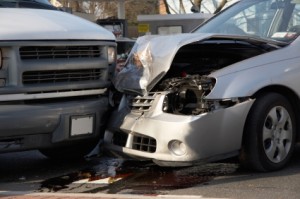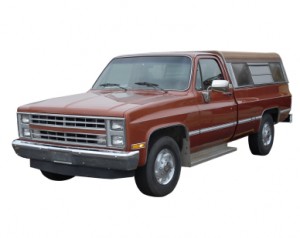5 Situations Where Liability Only Auto Insurance Is a Good Idea
 If you are trying to cut costs, you may be looking at your car expenses to see if some savings are available. While having enough car insurance is very important, there are five situations where liability-only auto insurance is a good idea.
If you are trying to cut costs, you may be looking at your car expenses to see if some savings are available. While having enough car insurance is very important, there are five situations where liability-only auto insurance is a good idea.
Find fantastic insurance that fits your budget by entering your ZIP code into the FREE box!
The bills that come with owning and driving a vehicle can quickly add up. As a result, you do not want to pay more for your car insurance if you do not have to.
It is important to remember that insurance exists because accidents can cause thousands of dollars in damage. Therefore, restricting your car’s protection to just liability coverage is only a good way to save money if you are in the right situation.
Liability Insurance
Nearly every jurisdiction requires drivers by law to purchase liability insurance. This type of insurance helps pay for the damage another person or his or her property incurs in an accident you cause. If it were not for liability insurance, many people would be financially ruined if they were involved in a serious car crash.
There are two types of liability insurance: property damage and bodily injury. Property damage insurance helps pay for repairs that a person’s car or building receives in an accident. Bodily injury insurance helps cover medical costs like hospital bills or rehabilitation expenses.
The amount of coverage depends on how much liability insurance you buy. For example, you could purchase a liability policy that will pay $50,000 toward a person’s injuries. The policy could have a maximum payout of $100,000 for everyone injured in the accident.
A bodily injury policy like this would be described as a 50/100 plan, and it would provide $50,000 per person and $100,000 for the entire accident. The property damage a liability insurance policy covers is usually listed as the third notation. For example, if the policy provides $30,000 toward property damage, it would be listed as 50/100/30.
Since car accidents can result in expensive bills, buying a sensible amount of liability insurance is a good idea.
If you can afford it, you should invest in more than just your state’s minimum requirements. If you do not have enough coverage and have an accident, a person could try to take you to court to get more money.
You can find out more about the insurance laws and minimum requirements in your region by referring to your state government. For example, in Missouri, the Department of Insurance oversees the state’s auto insurance regulations. However, in the District of Columbia, it is the Department of Motor Vehicles.
Liability Only Auto Insurance
Coverage laws vary by state, so do your homework before deciding on the policy that is right for you. In most states, you are only required to carry liability auto insurance, and some people decide not to buy other types of coverage like collision or comprehensive. This kind of coverage is liability-only auto insurance.
 While liability insurance pays for the repairs another car needs after a crash you cause, it does not cover any damage to your vehicle. This is why many people buy collision insurance, which helps pay for the repairs to your own car. Depending on your car or the accident, your vehicle could require thousands of dollars in parts and labor.
While liability insurance pays for the repairs another car needs after a crash you cause, it does not cover any damage to your vehicle. This is why many people buy collision insurance, which helps pay for the repairs to your own car. Depending on your car or the accident, your vehicle could require thousands of dollars in parts and labor.
Comprehensive insurance covers the damage your vehicle receives in an incident that does not involve another vehicle. For example, if your truck needs repairs after exposure in a hailstorm, comprehensive insurance will pay for the repairs. Alternatively, it will cover the repairs your Jeep may need if it is broken into or vandalized.
You can learn more about the different types of auto coverage by searching online or referring to certain government websites. For example, Maine’s Bureau of Insurance provides extensive coverage information for consumers.
The more coverage you buy for your vehicle, the higher your insurance rates typically will be.
As a result, by not purchasing additional insurance like collision or comprehensive, you could save a lot of money on your premiums.
Although liability-only auto insurance is a tempting way to save some cash, it is only a good idea if one of the following situations applies to you.
Situation One: Your Car Has Little Value
People buy collision and comprehensive insurance to protect themselves financially from repairs their car may need. If you have ever owned a new or more valuable car, you probably know just how expensive repairs can be. Fixing a brand new sports car or luxury vehicle can cost thousands of dollars.
The more valuable a car is, the more an insurance company will charge to cover it. If you purchase a good amount of liability insurance, by the time you add collision or comprehensive coverage for a pricey car, your premiums will not be cheap.
However, if you drive an older, less valuable car, liability-only coverage may be the way to go.
In other words, it may not make financial sense to cover a dated and inexpensive vehicle with collision and comprehensive insurance.
For example, if the car you own is only valued at $3,000 and you pay $500 per year for collision insurance, in just two years you will spend one-third of the car’s total value on the coverage. Of course, you would be putting this money toward an accident that may never happen.
Once you also factor in what you would pay for comprehensive insurance, the amount of money you are spending on insurance gets even closer to the vehicle’s total value. In a situation like this, you may decide to take the risk and go with liability-only auto insurance. If you cause an accident, it would not make financial sense to spend even $2,000 to repair a car less valuable than that to start with.
Of course, there are other things to consider before you go with liability-only insurance for an inexpensive car. If you do not have access to credit or you are just getting by, having to spend an extra $500 or $750 to repair your car might not be an option.
In addition, if you need a car for work, or to take care of other responsibilities, you may not want to risk liability-only auto insurance even if, on paper, it makes financial sense.
While you consider your options for this type of situation, it is important to get a good sense of what your vehicle is worth. You can find out more about the value of your car by searching online or referring to resources like the Kelley Blue Book’s What Is My Car Worth? Tool.
Situation Two: Limited Mileage
Another situation where liability-only auto insurance could be a good idea is if you hardly drive your car at all. Of course, if your vehicle is an expensive luxury car, it is probably wise to have collision and comprehensive insurance. Even a small incident could set you back a lot of money.
 However, if you do not have a pricey car, and seldom drive, it may not be worth carrying collision insurance. Statistically speaking, the more your car is on the road and around other cars, the more likely an accident can occur. If you are a solid driver and only take the car out once or twice a week, the chances of an accident are probably slim.
However, if you do not have a pricey car, and seldom drive, it may not be worth carrying collision insurance. Statistically speaking, the more your car is on the road and around other cars, the more likely an accident can occur. If you are a solid driver and only take the car out once or twice a week, the chances of an accident are probably slim.
Purchasing just liability insurance in this situation only makes sense if you do not live in a region prone to bad weather or crime. If there is a decent chance that your car could be broken into or damaged in bad weather, it may be wise to purchase comprehensive insurance.
Before you make a decision based on mileage, evaluate the value of your car and what you would have to pay to fully insure it.
Situation Three: You Live in a Remote Region
If you live in a very remote region and rarely encounter other cars or people, you may determine that liability-only insurance makes the most sense.
If you do not drive your car in traffic or challenging circumstances, you may decide to take the risk and not buy collision.
Typically, crime rates are lower in remote and less populated regions. Therefore, as long as your area is not prone to natural disasters or storms, you may determine that comprehensive insurance is not worth it either.
Situation Four: You No Longer Lease
Regardless of the value of your car, if you are leasing it, liability-only insurance may not be an option. Most automobile dealers and manufacturers require people to also buy comprehensive and collision insurance if they are leasing their car. After all, when you lease a vehicle, you are not the owner. If the vehicle is leased to someone else, it needs to be in good condition.
If once your lease is over you decide to purchase the car, liability-only auto insurance may be the way to go. Once again, it depends on the value of your car and the rates you are being asked to pay.

Situation Five: Lack of Funds
If you are having a tough time financially, you may not be able to buy additional insurance. Plenty of people need vehicles to take care of their families or to make a living.
They may only be able to afford liability-only auto insurance. Additionally, money that can be saved by not having collision or comprehensive coverage can be put toward other necessities like rent or health insurance.
Of course, liability-only auto insurance is particularly recommended to people who do not drive expensive cars. If money is tight to begin with, it should not be put toward a flashy, expensive vehicle that could cost thousands to repair. Certain cars are more affordable to cover than others.
Shop for fantastic car insurance now by entering your ZIP code into the FREE box!
